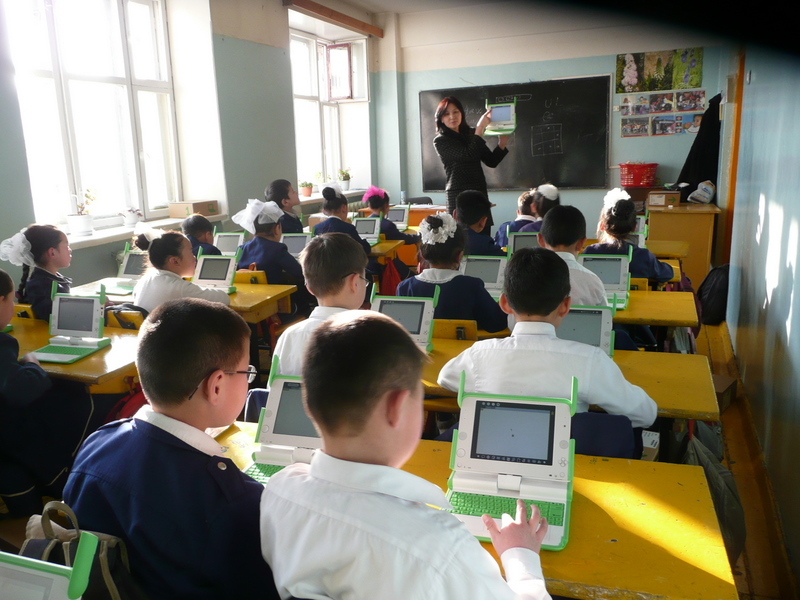The growing need to improve educational models requires the revision of the concept of Academic Quality to make way for the term Educational Suitability.
In this day and age, a government body sets “educational quality” rules for teachers to follow in the classroom; the more rules observed, the “higher” the academic quality. However, they fail to take into consideration the diverse contexts faced by teachers.
Academic quality is perceived as an industrial practice, in which curricular design forms the basis for an ideal teaching-learning process. Whether or not teachers have fulfilled 100% of the curriculum can be verified with the results of international standardized tests, departmental exams, through the students’ performance reflected in their final grades and through any academic awards (individual or group) attained by schools, among others.
“Academic quality is perceived as an industrial practice, in which curricular design forms the basis for an ideal teaching-learning process.”
However, for researchers like Marco Murueta, the global social and economic crisis is the cause-effect of the worldwide education crisis. The outcome has been the growing need to improve educational models and, in particular, the obligation to revisit the concept of Academic Quality to make way for the term Educational Suitability. This concept was presented by Dr. Vicenç Font from the University of Barcelona in the conference “Evaluative and Normative Criteria in Teaching a Science Subject”, drawn from the research work conducted by a group of professors in which they reflect on quality or suitability criteria in the teaching practice, seeking to empower teachers in the enhancement of teaching-learning processes, by replacing rules with principles, whose weight may vary according to the context of their classroom.
“Normative Principles, unlike rules, are governed by the weight assigned by teachers according to their classroom situation.”
Unlike the concept of Quality, Didactics is the center of teaching-learning processes, addressing two main demands:
-
Understand the teaching-learning processes of each discipline.
-
Guide the improvement of the teaching-learning processes of each discipline (assessment and enhancement).
These two demands are shared by directors, normative experts, and educators. The second demand, in particular, implies Normative and Moral Principles: quality, good, bad, better, worse.
Normative Principles, unlike rules, are governed by the weight assigned by teachers according to their classroom situation. Teachers ensure compliance with all the normative principles, but they can resolve any contradictions between the same by assigning different weights to each one. For example, they can devote more time to prior knowledge in a class when they detect a deficiency in the students at the start of a course.
These are the criteria we can follow in analyzing our teaching practice (Font, 2018):
-
Have I taught the subject with quality? (Epistemic suitability)
-
Have students learned from the proposed assignment? (Cognitive suitability)
-
Have I used temporal, material resources, and Information and Communications Technologies (ICT) appropriately? (Media suitability)
-
Do the assignments and their management foster student engagement? (Emotional suitability)
-
Have I handled in-class interaction properly, solving students’ issues? (Interactional suitability)
-
Does the content match the curriculum and is it useful for students’ social integration and job placement? (Ecological suitability)
The answers to these questions will help educators to determine if they have been teaching a discipline with quality and to reflect on whether students have learned and this knowledge will be useful for their environment. In educational suitability, the governing bodies will define these normative principles, and the teachers will choose the weights for each of them.
These types of reflections will be difficult for teachers who have not received appropriate pedagogical training, displaying the importance of continuous teacher training, particularly for educators without any adequate educational preparation: Engineers, Lawyers, Doctors, everyone who became teachers because they were experts in their area or discipline. Nowadays, being an expert in a subject is not enough. Teachers need to understand the didactics of their discipline: how their students learn and what the theories of teaching are.
Academic quality will become academic suitability when educators receive the Normative Principles dictated by their governing bodies and then, based on their pedagogical knowledge; they will be able to assign the corresponding weights to each principle, depending on the specific context. In this way, Academic Quality will be transformed into Educational Suitability and will no longer be the sole responsibility of top government officials, but also thousands of teachers in charge of thousands of classrooms, in thousands of different contexts.
About the author
Rodrigo Ponce Díaz (rponce@itesm.mx) is the Director of the Tec High School, Eugenio Garza Lagüera. He has participated in high school science curricular design since 2014 and in Educational Innovation projects at Tecnológico de Monterrey.
Reference
Murueta, M. E. (2017). Alternativas para Nuevas Prácticas Educativas (Ed. rev.). Ciudad de México, Mexico: Amapsi. http://la-sera.org/2018/formatos-en-extenso/
This article from Observatory of the Institute for the Future of Education may be shared under the terms of the license CC BY-NC-SA 4.0 
)
)






)
Paulette Delgado
Paulette Delgado
Paulette Delgado